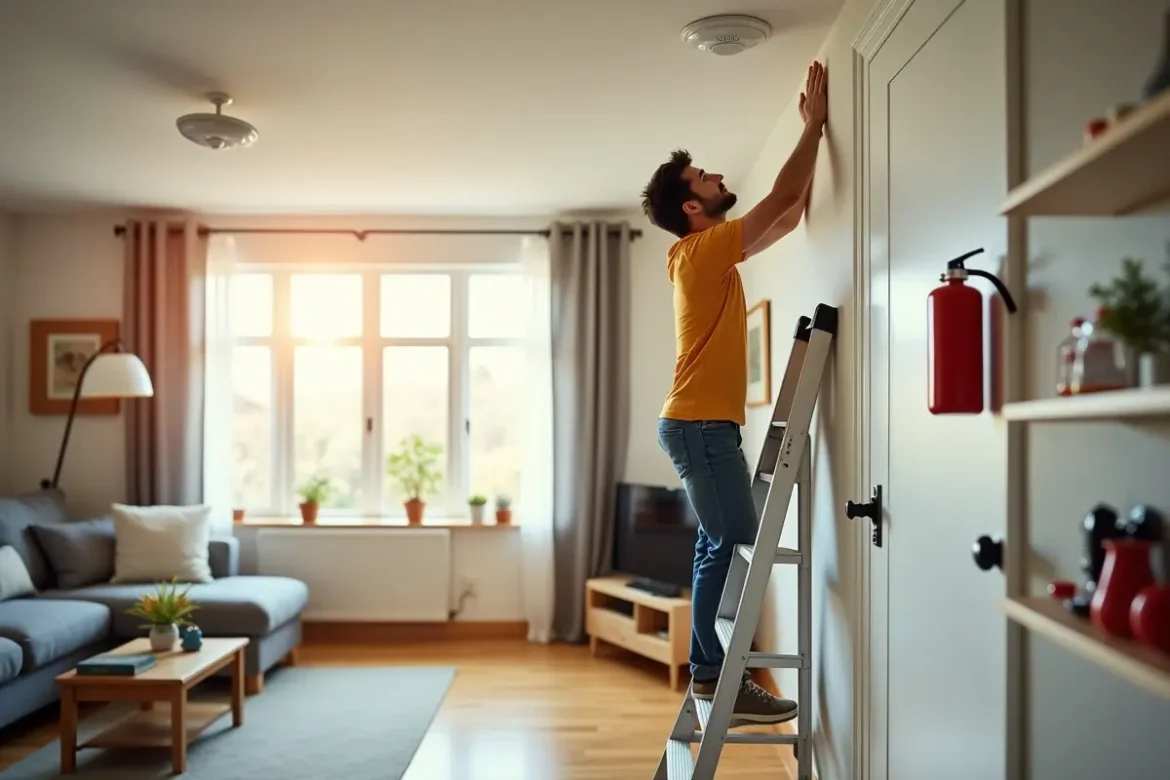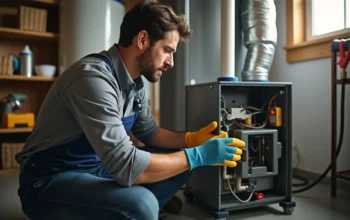
A safe home isn’t just about sturdy locks or a security system. While those are great, there are a lot of other hidden dangers that can impact your household’s safety and health. Staying proactive with regular tests and checks can make a huge difference—and, honestly, it’s simpler than you might think.
Here’s a practical guide to the essential checks every homeowner should keep on their radar, from radon levels to fire extinguisher readiness.
Contents
- 1 Radon Testing – The Invisible Threat
- 2 Smoke and Carbon Monoxide Detectors – The Basics, But Essential
- 3 Water Quality Testing – More Than Just Taste
- 4 Inspecting Your Home’s Electrical System – Avoiding Hidden Fire Hazards
- 5 HVAC System Check-Up – Keeping Air Quality in Check
- 6 Foundation and Structural Inspection – Keeping an Eye on Cracks
- 7 Fire Extinguishers – Ready for an Emergency?
- 8 Closing Thoughts – Take Charge of Your Home’s Safety
Radon Testing – The Invisible Threat
Most people don’t think about radon until it’s too late, yet radon is a silent threat that’s responsible for thousands of lung cancer deaths each year. So what exactly is radon? It’s a colorless, odorless radioactive gas that seeps from the soil into your home, mainly through cracks in your foundation.
The scary part? It’s entirely undetectable without a professional test. And while radon levels vary by region, no home is completely immune. If you’re wondering how often to invest in radon testing, the recommendation is every two years, even if past results have been low.
Hiring a certified radon inspector can provide accurate readings, ensuring that your home stays below the EPA’s action level. It’s one of those checks that might seem easy to ignore, but considering the health risks, it’s worth adding to your home maintenance list.
Smoke and Carbon Monoxide Detectors – The Basics, But Essential
Smoke and carbon monoxide detectors are some of the most critical safety devices in your home, yet they’re often neglected. How often do you check that they’re actually working? These devices should be tested monthly, and batteries should be replaced at least once a year. Many detectors now come with a “test” button that makes this check quick and simple.
If you’re using detectors with sealed batteries, the entire device will need replacing every ten years. It’s easy to forget, but keeping a reminder in your phone or marking it on your calendar can ensure your detectors are always ready to protect your household. And don’t skimp—detectors should be installed on every level of your home, especially near sleeping areas. Safety isn’t about doing the bare minimum; it’s about going the extra mile.
Water Quality Testing – More Than Just Taste
Water quality isn’t just a concern for people with well water. Even city-supplied water can sometimes contain contaminants. Water quality testing can reveal impurities, such as lead, bacteria, and harmful chemicals, that could be affecting your health without you realizing it. Contaminants can come from corroded pipes, natural minerals, or even local construction projects.
Consider testing your water once a year, or more frequently if you notice changes in taste, color, or odor. You can purchase an at-home testing kit or, for more accurate results, hire a professional service. If issues do arise, a whole-house water filter or point-of-use filter for drinking water could be a smart investment. Additionally, the Berkey Phoenix Filter Elements – New Millennium Edition deliver advanced water purification with long-lasting, high-performance filtration.
Inspecting Your Home’s Electrical System – Avoiding Hidden Fire Hazards
Electrical issues are among the leading causes of home fires, yet many of them are entirely preventable with regular inspections. Start with a basic walk-through of your home. Do you notice any flickering lights? Are outlets warm to the touch, or do they emit a burning smell? These could be signs of wiring problems.
It’s also wise to have a licensed electrician do a full inspection every five to ten years. They can spot and fix issues like outdated wiring, overloaded circuits, or any small faults that could lead to big problems. Don’t wait until an outlet sparks or trips a breaker. Electrical fires don’t usually give a warning, so a proactive approach could save your home—and even your life.
HVAC System Check-Up – Keeping Air Quality in Check
Your HVAC system does a lot more than keep you cool in the summer and warm in the winter. It’s also a major player in your home’s air quality. A neglected HVAC system can lead to mold growth, dust buildup, and reduced efficiency. At minimum, change your filters every three months. If you have pets or allergies, you might want to change them monthly.
Scheduling a professional tune-up once a year will ensure your system is running efficiently and safely. This service includes cleaning, inspecting, and adjusting various components of the system. In some cases, technicians may also check for potential carbon monoxide leaks, which can be deadly if left undetected.
Foundation and Structural Inspection – Keeping an Eye on Cracks
Your home’s foundation supports everything, so it’s essential to keep it in top condition. Cracks in walls, sloping floors, or doors that don’t close properly can all hint at foundation issues. Most of these signs develop slowly, so you may not notice them at first.
Every couple of years, take a close look around your basement, exterior walls, and foundation for any new or worsening cracks. Minor cracks may not be a big deal, but anything significant should be looked at by a structural engineer. Ignoring foundation issues can lead to expensive repairs down the line and can even compromise your home’s safety during extreme weather.
Fire Extinguishers – Ready for an Emergency?
Fire extinguishers aren’t just for kitchens; they’re a must-have for any home. But they aren’t very helpful if they’re out of date or in poor condition. Place one in the kitchen, garage, and any areas where a fire is more likely. Each extinguisher should be inspected yearly to ensure it’s fully charged and hasn’t expired.
Most fire extinguishers have a gauge showing whether they’re pressurized. If it’s in the red zone, it’s time for a replacement. Make sure every family member knows where the extinguishers are located and how to use them. A fire emergency isn’t the time to read the instructions!
Closing Thoughts – Take Charge of Your Home’s Safety
When it comes to home safety, a little diligence goes a long way. Regularly checking on these areas isn’t just about protecting your property—it’s about creating a secure, healthy space for you and your family. The truth is, a well-maintained home not only saves you from costly repairs in the future but also gives you peace of mind every day. So grab a notepad, set reminders, and make these checks part of your routine. After all, a safe home is a happy home, and you’re in control of making it that way.



